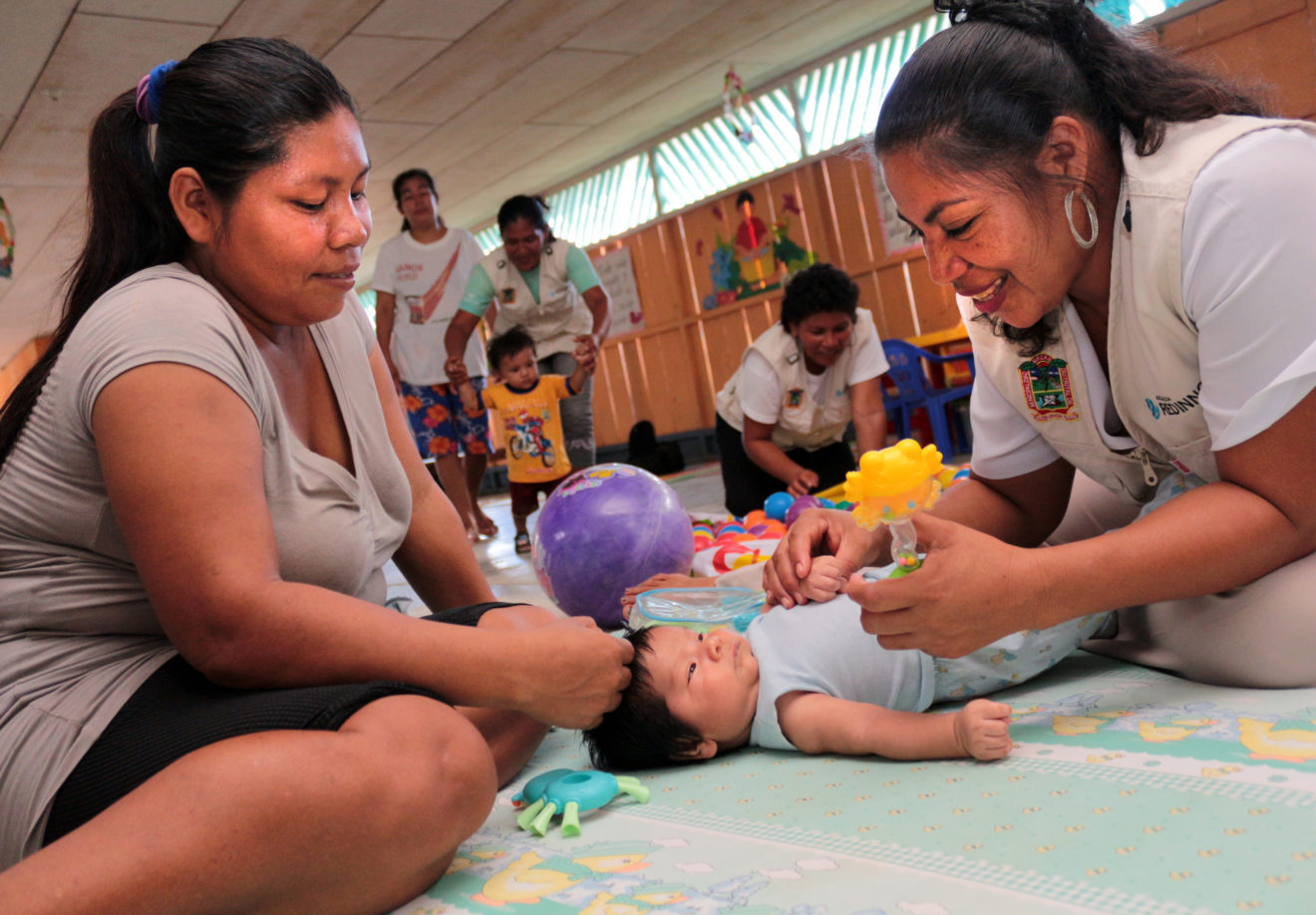 Photo: Courtesy of Asociación Red INNOVA
Photo: Courtesy of Asociación Red INNOVA
 Photo: Courtesy of Asociación Red INNOVA
Photo: Courtesy of Asociación Red INNOVA
Investments in early childhood development have increased in many countries over the last decade, and with investment comes an interest in measuring progress. Data on early childhood development – such as quality of services, or estimates of the health and nutrition status of young children – are crucial to inform policy developments and reforms and improve ongoing programmes. Data are also a key element of accountability: as part of the Sustainable Development Goals (SDGs), countries are required to submit annual reports on indicators relevant to early childhood development.
However, several elements of early childhood development create challenges in building effective data systems. Because it is best understood in a holistic framework, data systems need to cut across multiple sectors, such as health, nutrition, child and social protection, and education. We need to ensure that relevant early childhood indicators are integrated within sectoral information and data systems, and coordinating between these data systems is critical to build a comprehensive national snapshot of the situation of young children.
Even with the best data systems in place, it can be challenging to use data to directly inform policy and practice; the data that are well suited for monitoring at a population level, for example, may not be especially useful at a practice level. With limited funding available for early childhood overall, investments in data must be balanced against investments in other areas, such as professional development and direct support for programmes. Finally, more emphasis has been placed so far on developing tools to collect data than on using those data to make improvements.
Despite these challenges, there is notable progress, with increased consideration of how data systems can be designed and the willingness of several countries to prioritise investments in early childhood data and measurement. One reflection of this forward movement is the Early Childhood Development Action Network (ECDAN), described in this article of Early Childhood Matters. Among the task forces set up by ECDAN was one on data, measurement and accountability. The work of this task force has so far led to several observations:
‘Even with the best data systems in place, it can be challenging to use data to directly inform policy and practice.’
The SDGs offer an opportunity to build on the momentum and interest in measuring child development to move in the direction of data systems that include a broader and more comprehensive view of early childhood development. Creating a holistic picture of children’s development requires integrated data systems that pull key indicators from a range of sectors. Few countries, including high-income countries, have the type of coordinated and comprehensive systems needed to fully embody this vision. The ECDAN task force proposed a series of actions to support countries in building such systems, including the creation of an ‘early childhood indicator framework’ that can be used as a blueprint for countries considering a coordinated data system.
Data quality is a related area of emphasis – while it is critical to collect more data, it is equally important to ensure that the data are of good quality and are representative of the early childhood development service landscape. Many national systems have struggled to keep up with the diversity of service provision over recent years, so national data systems mainly capture information related to public services. Data are rarely disaggregated by residence, income or ethnicity. Household surveys such as MICS can provide a picture of children and families that is richer than administrative data, which provide more detail on service provision but less on the characteristics of children and families who participate.
There is a need to develop an integrated information system for children that describes provision, coverage participation, quality and equity in early childhood services. Accurate reporting of equity is achieved by ensuring representation from all groups of children and families, especially for those children and families who are under-represented in many existing household surveys because of geographical or cultural isolation.
Varied experiences in countries at all income levels offer lessons for others. For example:
Many countries begin with improving one aspect of the data system, and then build outwards to include more integrated approaches. Azerbaijan, for example, started by exploring how best to improve and coordinate data across early childhood education services under the education sector, but also kept an eye on replicating this process across other sectors. In Peru and Tanzania, efforts do not yet include the creation of holistic data systems; however, the measurement of child outcomes may serve as a starting point for a more comprehensive early childhood data system in the future. The experience in the USA demonstrates both the cost and the time commitment required to build integrated data systems, and also offers important examples of how such systems can be built.
As attention turns towards the implementation of effective early childhood programmes and policies, emphasis on data and measurement is required, both to inform implementation and to track progress towards goals.
References can be found in the PDF version of the article.



See how we use your personal data by reading our privacy statement.
This information is for research purposes and will not be added to our mailing list or used to send you unsolicited mail unless you opt-in.
See how we use your personal data by reading our privacy statement.